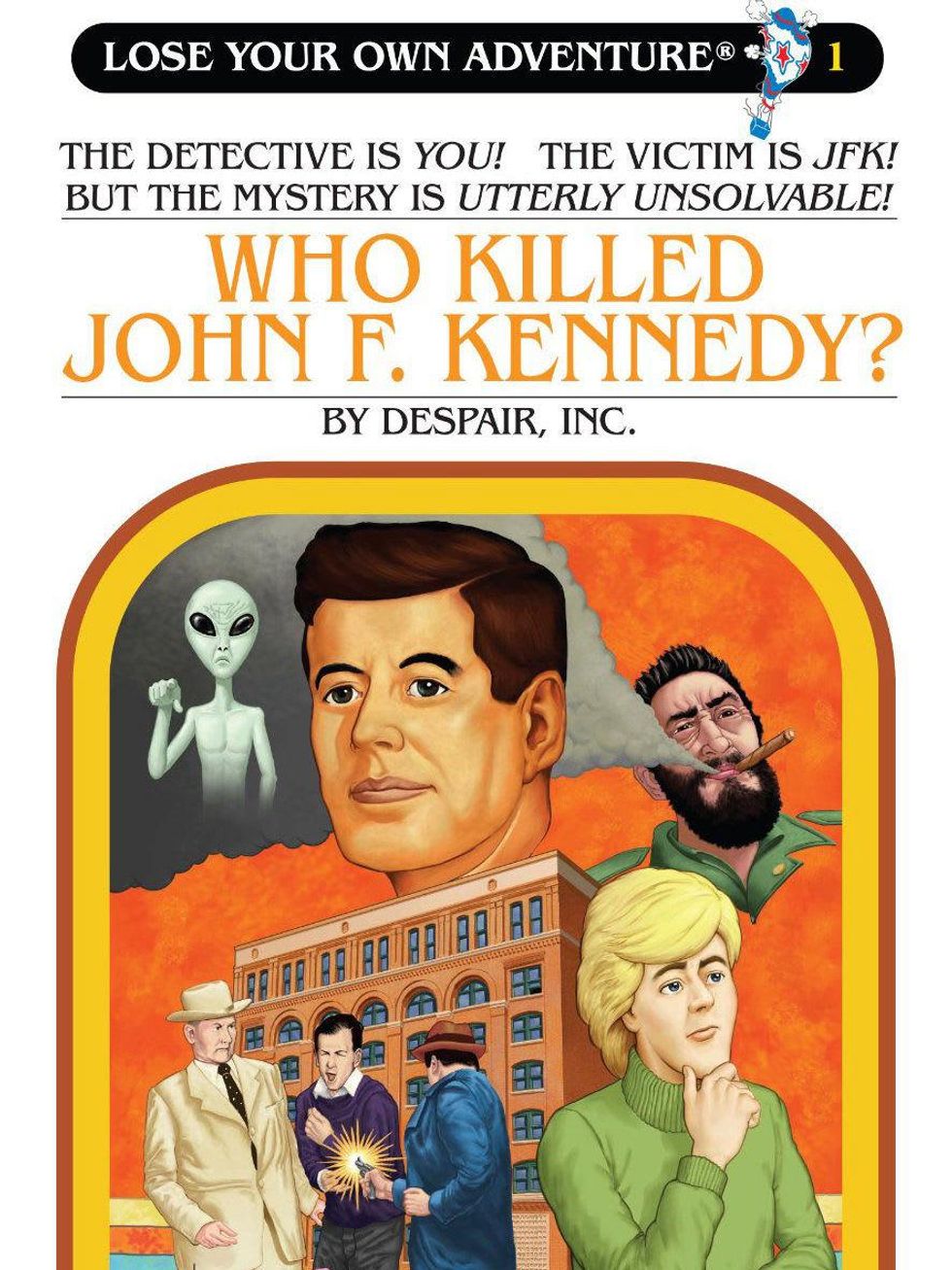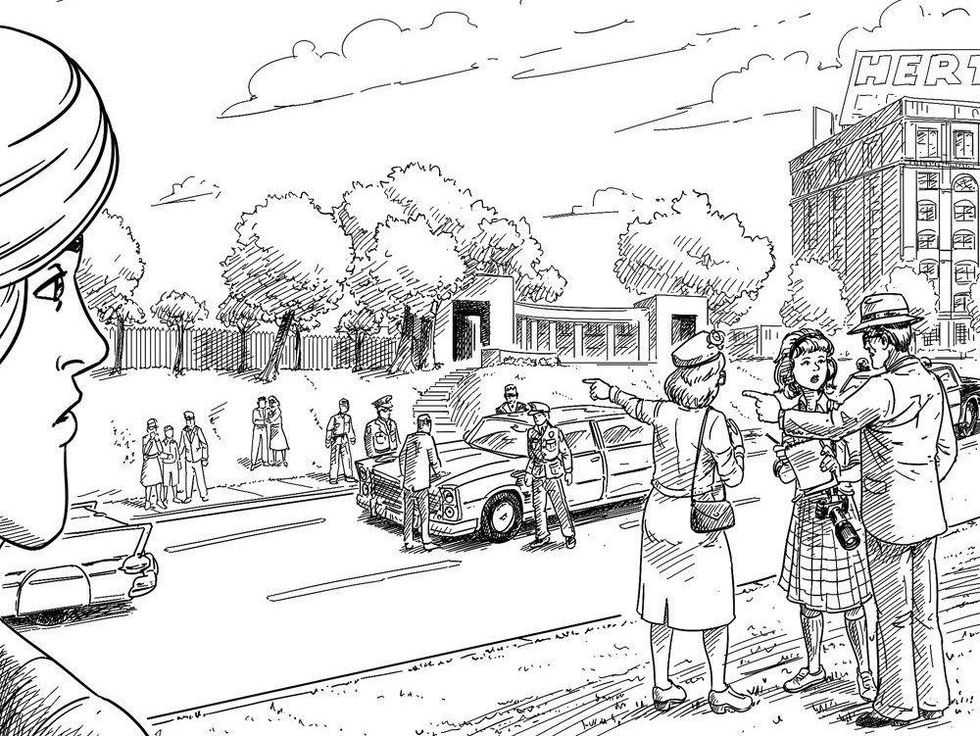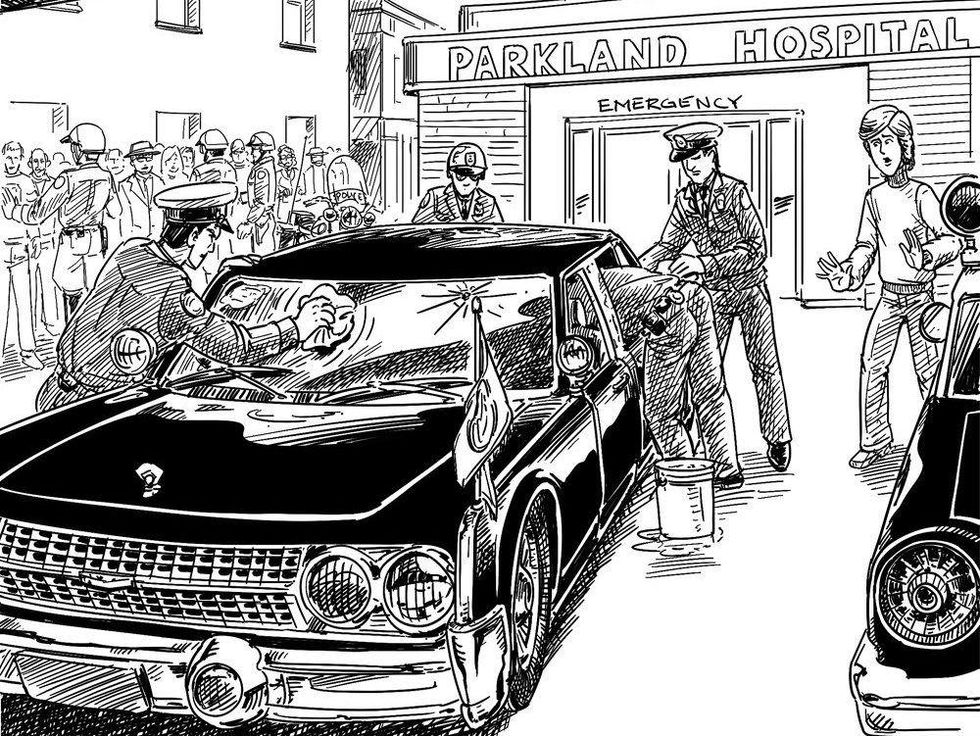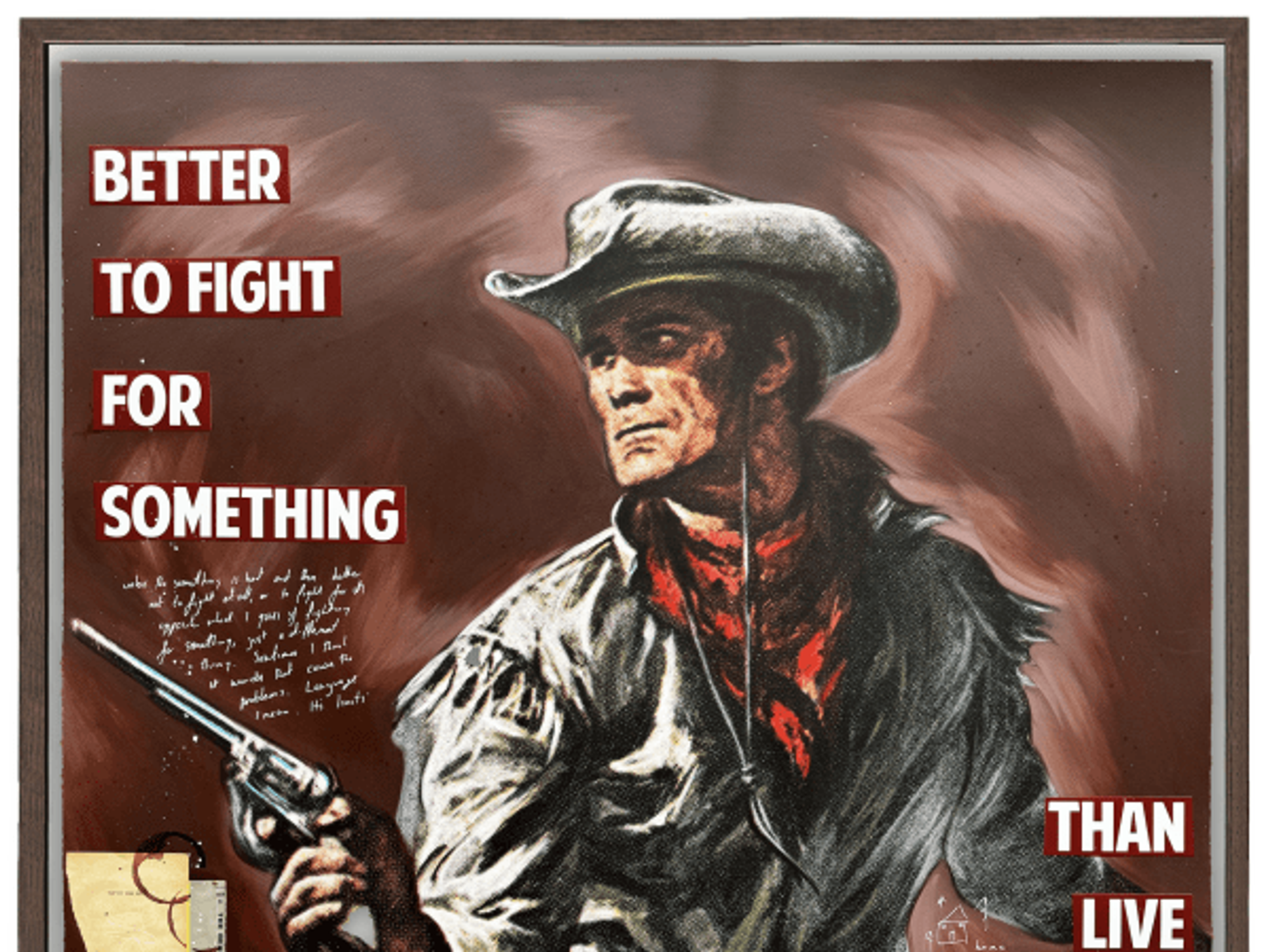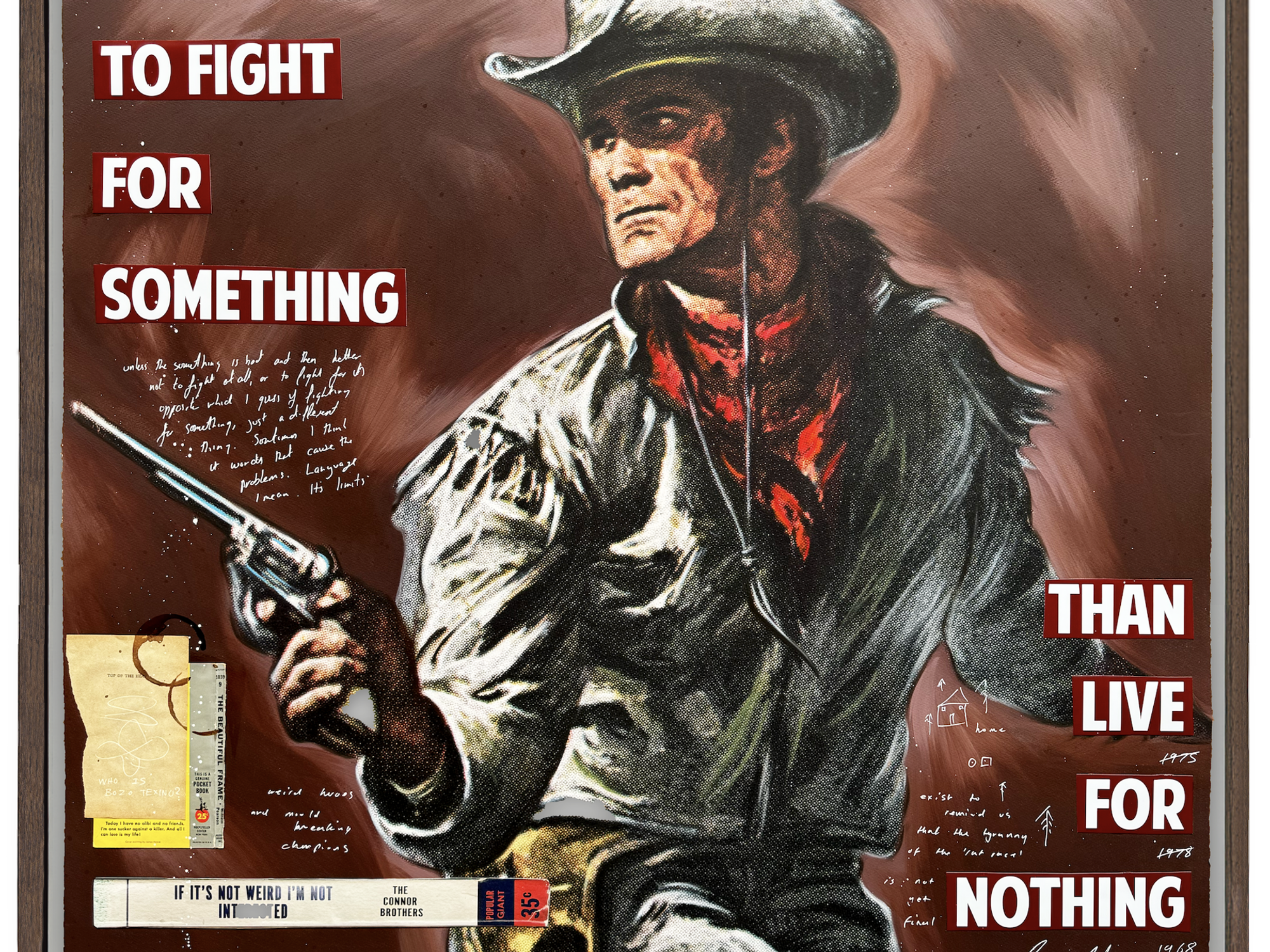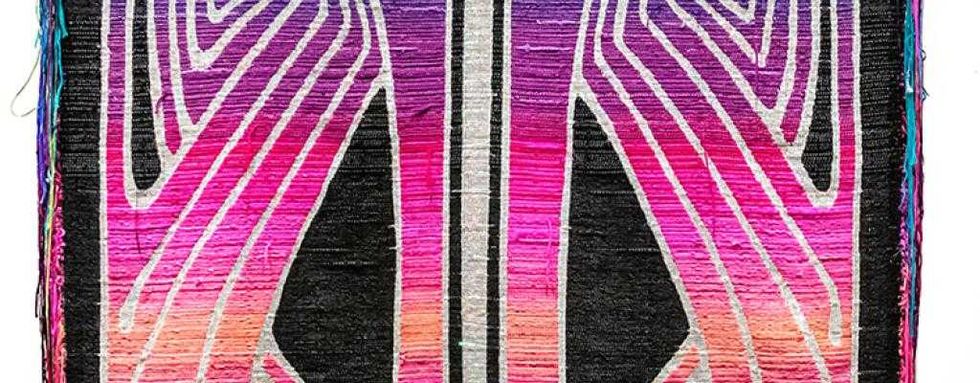Lose Your Own Adventure
Who Killed John F. Kennedy? Choose your own adventure and (fail to) find out

As pretty much every sentient American knows, today marks the 50th anniversary of the assassination of President John F. Kennedy. There’s no escaping the round-the-clock coverage and remembrances of various historians, newscasters and politicians. Many will commemorate the tragedy of that fateful day at Dealey Plaza, but many more will forever debate what, exactly, happened before, during and after the president's assassination.
While the official story is that Lee Harvey Oswald acted alone in the murder, a new Gallup poll shows that 61% of Americans believe that Oswald did not act alone. To this day, a majority of Americans still think that there’s more to what happened around the event than what's in the Warren Commission report, with theories ranging from the mundane to full-blown, tinfoil-hat territory.
The investigation into JFK’s assassination was full of opportunities to fill in the blanks, and it led a Texas author to take a lighthearted look at attempts to uncover the truth.
The fact is that the investigation into JFK’s assassination was messy and full of opportunities for anyone to fill in the blanks, and it’s what led a Texas author to take a lighthearted yet educational look into attempts to uncover the truth.
Justin Sewell is the CEO and head writer of Despair.com, a website devoted to selling a line of demotivational posters, T-shirts and calendars. Born in Dallas but now residing in Austin, where Despair.com is based, Sewell has branched out with a new endeavor: the “Lose Your Own Adventure” book Who Killed John F. Kennedy?
Released in late July, the book is a parody of the classic “Choose Your Own Adventure” genre of young adult novels, except all of the possible choices in the book set you up to fail, just like in real life. In Who Killed JFK?, you are in the shoes of a brilliant kid detective who tries to bust the case of the assassination wide open, following threads of evidence that point to perpetrators that possibly include the CIA, the Mafia and Freemasons.
“The ‘Lose Your Own Adventure’ series has been in the works for a while,” says Sewell, “and we tried to capture the style and nostalgia of that childhood, such as the feathered hair and the Donnie Osmond look.” The difference lies, according to Sewell, in their adult view of how the world works.
At first, the LYOA series would have begun started with The Glass Ceiling, a book that would follow the struggles of a woman struggling to make the right choices in navigating the corporate ladder, “but JFK perfectly fit the established genre of mystery in the old 'Choose Your Own Adventure' stories,” says Sewell, devoting their efforts to getting that particular story off the ground. “We wanted to give the reader their own moral agency.”
Sewell and others spent a lot of time piecing the story together. “We spent four years on the book, off and on. We wanted to get the chronology of the week correct. It was exhausting reading books and watching archival footage and interviews.”
One of the goals of Who Killed JFK? is to present an overview of how some conspiracy theories originated and what they branched off into. The book features some of the curious details of the investigation, particularly by the protagonist’s bumbling father, who happens to be the chief of the Dallas Police Department, similar to Encyclopedia Brown’s incompetent father.
Justin Sewell sees the 50th anniversary of the JFK assassination as the last hurrah for a discussion of what happened.
Sewell says that the intent of the book is to be funny and darkly satirical, but not to the point that it makes light of Kennedy's tragic death. “We stay away from the assassination; we’re more focused on making fun of some of the bad behavior that went on that day.”
The book pokes plenty of fun at the various conspiracy theories out there, whether they blame the Mafia or reptilian humanoids, but Sewell also takes a fair number of shots at investigations by the DPD and FBI, along with people who raised their own profiles in the aftermath of the tragedy, such as Dan Rather and Arlen Specter.
In his years spent researching, Sewell says that he hasn’t seen entirely convincing evidence of any specific claim. While the release of the book does coincide with the 50th anniversary of the assassination, Sewell sees the date as the last hurrah for a discussion of what happened and how much could have been done to prevent the lingering doubt.
“A big part of the population is in an agnosticism of the assassination, or many are convinced that their narrative is definitive. … This may be the last time that we can have a cultural conversation of the events of that day.” If you think you can crack the case of who killed JFK, now’s your chance to find out how you will fail. Don’t be surprised if you end up wearing some concrete shoes, courtesy of the Mafia.
Along the way, you face various attempts at obstruction of justice from the likes of the DPD, FBI, Secret Service and even the Freemasons.
